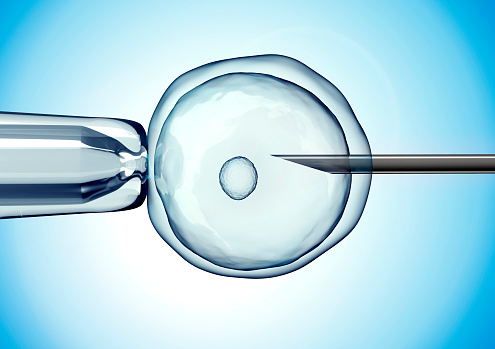
After more than 20 years of follow-up, a study published in Human Reproduction found that children conceived via assisted reproductive technology do not appear to have an increased cancer risk.
Researchers conducted a nationwide historical cohort study with a prospective follow-up. They assessed all live-born offspring from women treated with assisted reproductive technology (i.e., in vitro fertilization [IVF] and intracytoplasmic sperm injection [ICSI]) who participated in the OMEGA study and were treated at one of the 12 Dutch IVF clinics or two fertility clinics between 1980 and 2001.
⭐️ Another reassuring study regarding safety of assisted reproduction: Children produced by ART do not have a higher risk of cancer in childhood and adolescence. #WorldCancerDay https://t.co/KlgjIqZLYZ
— Paula Brady, MD MFA (@DrPaulaBrady) February 4, 2019
Among the 47,690 live-born children, 24,269 were conceived via assisted reproductive technology, 13,761 were conceived naturally, and 9,660 were conceived naturally or through fertility drugs, but not by assisted reproductive technology. Researchers used medical records and questionnaires to gain conception information. They also assessed The Netherlands Cancer Registry for cancer incidence information.
After a median follow-up of 21 years (interquartile range = 17-25 years), 231 cancers occurred. The overall cancer risk was not increased in children conceived by assisted reproductive technology compared with naturally-conceived children from subfertile women (hazard ratio [HR] = 1.00; 95% CI, 0.72-1.38) nor the general population (standardized incidence ratio = 1.11; 95% CI, 0.90-1.36).
"ART-conceived children do not appear to have an increased risk of cancer" This is great! However, and taking into account that the 1st #IVF baby is now 40 y/o, we should be cautious and keep doing research with respect to long-term consequences @ESHRE https://t.co/t56qB0XcmG
— B. Rodríguez-Alonso (@BRodriguezAlns) February 5, 2019
Once the children reached 18 years and older, the HR of cancer in assisted reproductive technology-conceived children versus naturally-conceived children was 1.25 (95% CI, 0.73-2.13).
The researchers observed a slightly but non-significantly increased risk of cancer in children conceived by ICSI (HR=1.52; 95% CI, 0.81-2.85) or cryopreservation (HR=1.80; 95% CI, 0.65-4.95). Risks of lymphocytic leukemia (HR=2.44; 95% CI, 0.81-7.37) and melanoma (HR=1.86; 95% CI, 0.66-5.27) were non-significantly increased among assisted reproductive technology-conceived children versus naturally-conceived children.
Study: Breast Cancer Risk Remains Decades After Giving Birth
Parents’ Cancer Affects Children at a Socioeconomic Level
Source: Human Reproduction







 © 2025 Mashup Media, LLC, a Formedics Property. All Rights Reserved.
© 2025 Mashup Media, LLC, a Formedics Property. All Rights Reserved.